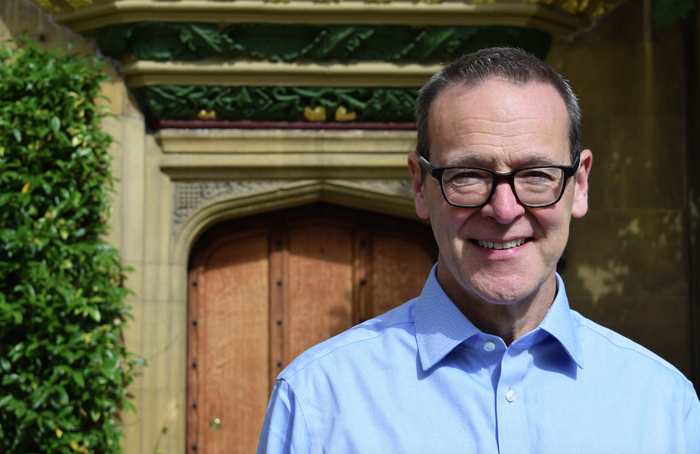Getting things in order with John Bercow
Chris Patel asks the former Speaker of the House of Commons about his controversial career, and how to shut up a room full of MPs

Thirty seconds into my conversation with John Bercow, I know one thing for certain – it is nearly impossible to interrupt him. But if you could limit him to one word, it would be a sonorous roar of ‘Or-derrrrrrr!’. I ask him if he ever goes the opposite way, and embraces a bit of chaos. “In retirement, you’re more inclined to do so”, he tells me. When he was Speaker, quite the opposite was true – he stuck steadfastly to his station. “I was sometimes accused of hogging the chair”.
Aside from accusations of overstaying his welcome as Speaker, Bercow’s political critics, particularly Conservatives, loved to accuse him of partiality. “I frequently made decisions which somewhat irked the Cameron government, which gave an opportunity for Eurosceptics to express their point of view. They were able to challenge ministers with urgent questions that I granted because I took the view that, although they were a minority, they were an important minority and their view had to be heard. Unfortunately, when I did the same for Remainers during the Brexit period [...] they didn’t like it.”
From 2009 to 2019, Bercow commanded the House of Commons from the vantage point of the chair, and was often more effective at calming down the house than many of the other Speakers we’ve seen. When the chamber became cacophonous, Bercow resorted to teacherly tactics: “One technique that was quite effective was to say, ‘Look, it doesn’t matter how long it takes, I’m going to get through this order paper [...] If we have to sit here for another 10 or 15 minutes, 20 minutes, so be it.’”
“I insisted on running my office, not being run by it.”
The most disorderly MP on each side of the house, Bercow recalls, were the Conservatives’ Michael Fabricant (“regarded himself as a very significant figure, I always thought he was a rather absurd individual”) and Labour’s Karl Turner (“goes from 0 to 60 in about five seconds” but “would come up to me afterwards and apologise”). Overall, Bercow characterises his leadership style as “firm voice and good humour.”
Maybe too firm a voice, and not enough good humour? Last year, an independent inquiry, which upheld 21 out of 35 complaints made against Bercow by former colleagues, judged him to be a “serial bully”. Bercow maintains that, due to the statute of limitations, these charges wouldn’t have been heard in court.
“Some of these events were 12 years ago, including, for example, the question of whether I stared at somebody in a hostile way, on a date which the complainant couldn’t remember.” Bercow has not spoken to any of his accusers since: “I left that workplace three years ago, so why would I make contact with them?”
Bercow maintains that he kept “fantastic relations” with all of his staff members but his three upheld accusers. “And I had an overwhelmingly stable Speaker’s office, in which the turnover was relatively low.” His bugbear, he says, was overly officious advisors: “I insisted on running my office, not being run by it. [...] You’re absolutely entitled to offer your advice. But I was elected, and re-elected and re-elected, which no Speaker in the post-war period has been.” Bercow’s one guilty plea is “to being a very decisive character.”
After we discuss his past, Bercow looks to the country’s future. He calls Liz Truss, uncontroversially, an “unmitigated disaster”, and says that the current Conservative government is potentially in “terminal decline”. He wants to see more Prime Ministers from non-Oxbridge backgrounds, feeling that being as “materially privileged” as someone like David Cameron or Rishi Sunak makes one necessarily out of touch with the electorate.
John Bercow is a paradoxical and divisive figure – 5’6” but larger than life, warm in public but accused of bullying in private. However, he does not shy away from what people say about him. As he wishes me the best of luck in my future endeavours, he announces that “you’ll write what you will” – and if people can’t handle that, Bercow says, then maybe a career in politics isn’t for them.
 Comment / Cambridge students are too opinionated 21 April 2025
Comment / Cambridge students are too opinionated 21 April 2025 Interviews / Meet the Chaplain who’s working to make Cambridge a university of sanctuary for refugees20 April 2025
Interviews / Meet the Chaplain who’s working to make Cambridge a university of sanctuary for refugees20 April 2025 News / News in brief: campaigning and drinking20 April 2025
News / News in brief: campaigning and drinking20 April 2025 Comment / Cambridge’s tourism risks commodifying students18 April 2025
Comment / Cambridge’s tourism risks commodifying students18 April 2025 Comment / Cambridge’s gossip culture is a double-edged sword7 April 2025
Comment / Cambridge’s gossip culture is a double-edged sword7 April 2025






